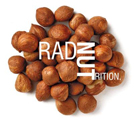If you’re walking or exercising a few times each week for good health, you may not need any extra nutrition other than hydration during exercise. Zoorob and co-authors in their 2013 journal article suggest that “maintaining proper hydration during exercise had the largest beneficial effect on performance.” Dehydration limits the efficiency of blood-flow to the muscles and therefore limits how quickly oxygen and glucose is transported to active muscle cells. Thus, replenishing fluids lost while exercising (not only after) is critical to performance and the ability to continue exercising.
For high intensity exercise that lasts longer than 60 minutes, athletes may benefit from taking 30-70g of carbohydrate per hour. The idea behind this recommendation is that replenishing carbohydrates could help increase endurance and spare glycogen stores. However, waiting too late to ingest the carbohydrate may impair performance, therefore the carbohydrate should be taken before a full hour of activity has been completed. Taking small amounts such as 10-15g every 15 minutes may decrease likelihood of gastrointestinal discomfort in some individuals. Common sources of carbohydrates during activity could include 4% – 6% carbohydrate sports drinks, fruit, carbohydrate gels, or fruit bars (low fat, low fiber, low protein). If physical activity involves excessive sweat in outdoor heat, a sports drink may be beneficial in decreasing risk of dehydration.
Some sources suggest that for those trying to gain maximum muscle, or those involved in long intense physical training, having 10-15g branch chain amino acids (BCAAs) during activity may decrease muscle breakdown and enhance recovery. Other sources state that this may not been needed if adequate protein is being consumed in meals and snacks throughout the day. It may be wise to optimize protein from food first and assess the effect it has on your performance goals. For intense or competitive physical training, seeking individualized support from a specialized professional may be best since trial of different nutrition methods may be needed.
References
http://www.ncbi.nlm.nih.gov/pubmed/23668654
http://www.dietitians.ca/Nutrition-Resources-A-Z/Factsheets/Sports-Nutrition/Sports-Hydration.aspx
http://www.ncbi.nlm.nih.gov/pmc/articles/PMC4008807/
http://www.dietitians.ca/Nutrition-Resources-A-Z/Factsheets/Sports-Nutrition/What-should-I-eat-and-drink-before,-during-and-aft.aspx
http://www.ncbi.nlm.nih.gov/pubmed/18974721
http://www.ncbi.nlm.nih.gov/pubmed/25566428
http://www.precisionnutrition.com/workout-nutrition-explained
